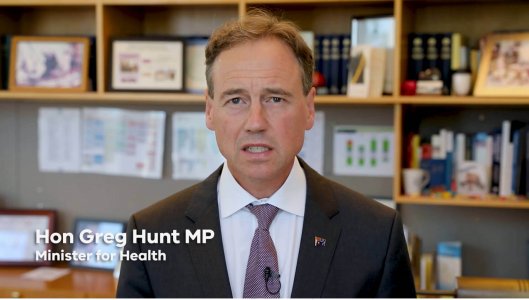Australia’s Health Minister Greg Hunt has announced $3 million for research into ME/CFS.
Minister Hunt notes that “funding will be provided through the National Health and Medical Research Council (NHMRC) to help researchers develop a better understanding of the cause and condition of myalgic encephalomyelitis/chronic fatigue syndrome (ME/CFS). Diagnosis of ME/CFS is difficult, with no diagnostic test and a diverse range of symptoms. Research will drive a better understanding of the condition along with its causes and the mechanisms that lead to its debilitating symptoms.”
Dr Heidi Nicholl, CEO of Emerge Australia, the peak body representing people with ME/CFS in Australia, welcomed the Federal Government’s research funding announcement today.
“By committing to fund research, the Federal Government has recognised that more needs to be done to define biomarkers for the condition, develop treatments, and eventually find a cure,” Dr Nicholl said.
Emerge Australia recently convened an International Research Symposium in Australia which brought together the leading researchers in Australia from around the world.
“I want to thank the Federal Health Minister, Mr Greg Hunt, for hearing our plea,” Dr Nicholl said.
“I also want to thank each and every person in the ME/CFS community who has helped the advocacy effort. This is for everyone who wrote a letter, asked for a meeting with a politician, met with a politician, took a photo for #MillionsMissing, joined a group online, told their story to us, and all of the many, many other individual pieces of advocacy that you all did.
Australia’s National Health and Medical Research Council (NHMRC) established an ME/CFS Advisory Committee in 2017 to review gaps in ME/CFS research and make recommendations about how to progress ME/CFS research in Australia. The committee’s draft report was released for public consultation in December 2018. This is the second recommendation made by the committee which has been implemented. The first was for a health economics study, for which a grant has also been announced. Whilst the final report has yet to be released, it is exciting to see that recommendations from the report are already being implemented.
In acknowledging the work of the committee, Dr Heidi Nicholl said, “We especially want to thank the two consumer representatives, Simone Eyssens (Research Director at Emerge Australia) and Penelope McMillan (Chair of ME/CFS Australia (SA)), who gave hours and hours in preparation, meetings and consultation to the committee. Their incredible hard work and dedication to improving the quality of life of people with ME/CFS has really helped Australia to start moving the dial.”
This $3M is a welcome injection of funds for ME/CFS research in Australia, which has largely been reliant on private foundations to fund biomedical research. This will help to strengthen the existing labs working in the field, and potentially attract new researchers.





